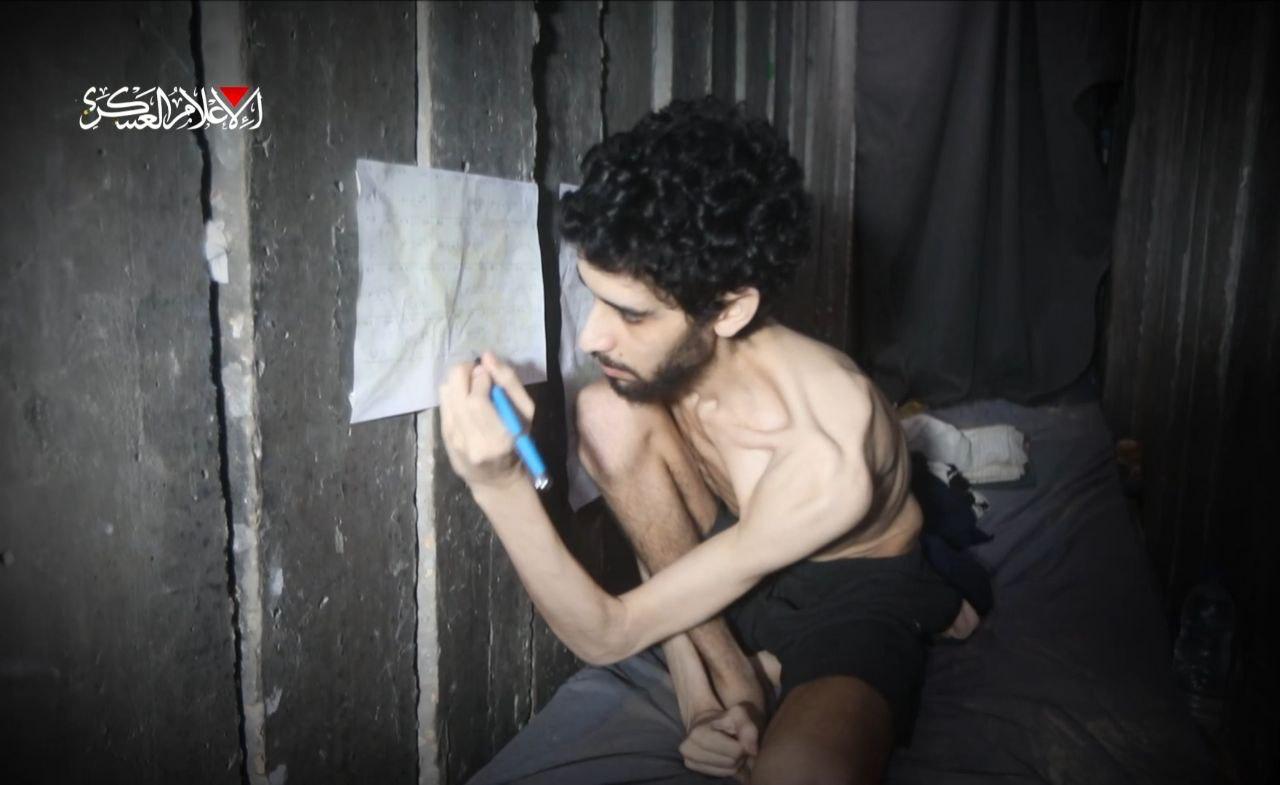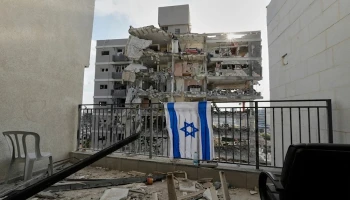Al-Qassam Brigades, the military wing of Hamas, released a video Saturday evening showing Israeli captive Avitar David inside a tunnel in the Gaza Strip.
The footage shows the prisoner in visibly deteriorating health, displaying clear signs of severe emaciation and malnutrition.
“I haven’t eaten in days,” he said. “Our food is barely enough—just lentils and beans. Our captors are giving us what they can.” He continued, “Netanyahu has abandoned us. Everything we were raised to believe in Israel is a lie.”
In a chilling statement, he added: “I’m digging my own grave. My body is weakening by the day, and I may be buried here in this tunnel.”
The video has reverberated across Israeli society—long desensitized to images of Gaza’s famine, yet now confronted with the humanitarian consequences for its own prisoners.
Former detainees, families of captives, and Israeli politicians and diplomats expressed shock and outrage, urging Prime Minister Netanyahu’s government to urgently pursue a comprehensive deal to secure the release of all hostages.
The Hebrew daily Yedioth Ahronoth described the footage as “deeply disturbing,” emphasizing that it reflects the severe impact of the humanitarian crisis on Israeli captives and warning that it could influence forthcoming policy decisions.
Opposition leader Yair Lapid commented: “Every government member should watch Avitar’s video tonight—and then try to sleep, knowing he’s struggling to survive underground.”
Army Radio’s military correspondent Doron Kadosh said: “Only now, after seeing these images, do we understand what real starvation means. Yet broadcasting such footage on Israeli media raises serious ethical questions.”
Meanwhile, the Forum of Hostages and Missing Families voiced its distress, urging officials to “watch the video as if it featured their own child,” and to take bold steps toward a sweeping deal to bring their loved ones home from what they called “hell.”







